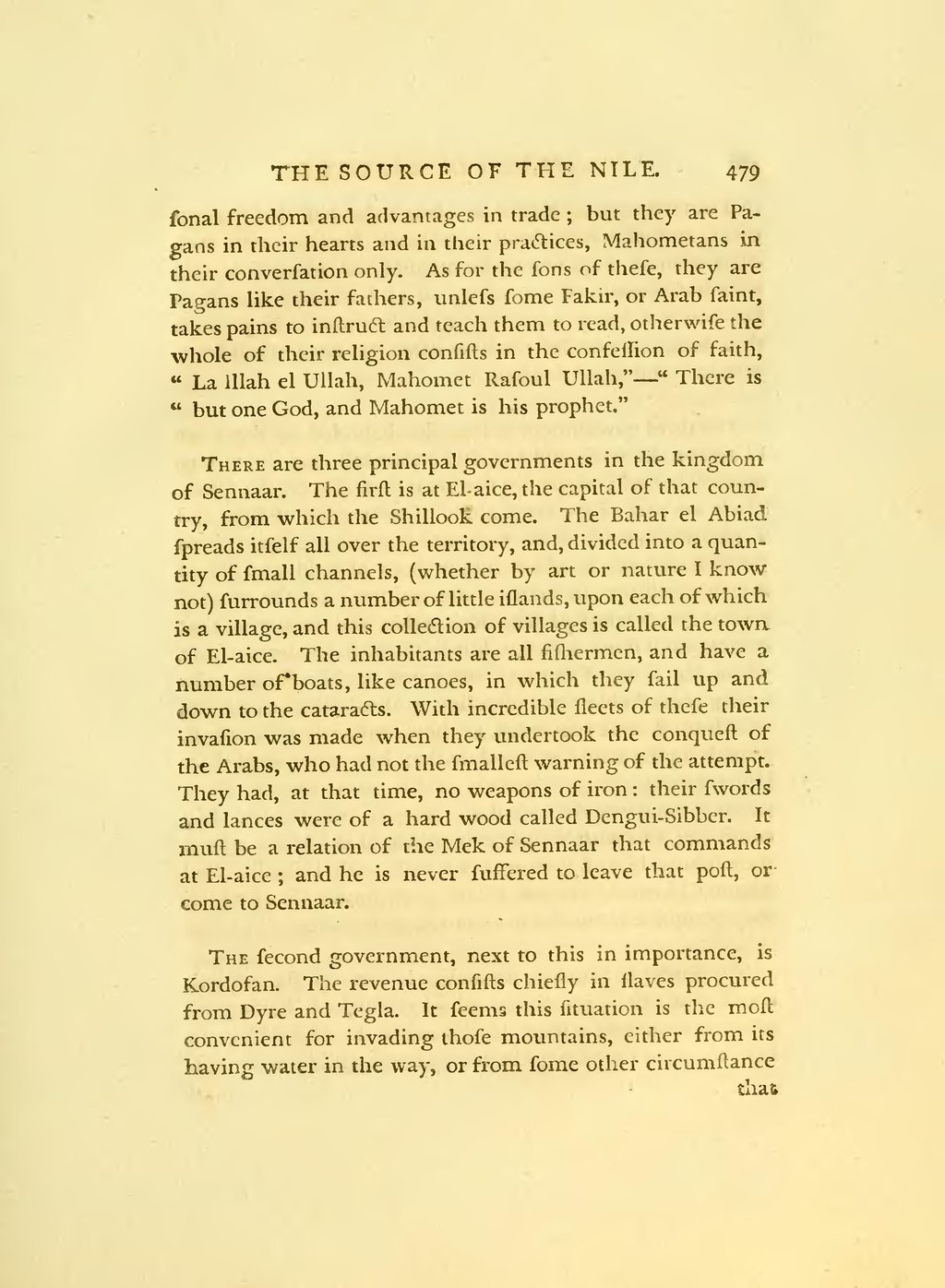sonal freedom and advantages in trade; but they are Pagans in their hearts and in their practices, Mahometans in their conversation only. As for the sons of these, they are Pagans like their fathers, unless some Fakir, or Arab faint, takes pains to instruct and teach them to read, otherwise the whole of their religion consists in the confession of faith, "La illah el Ullah, Mahomet Rafoul Ullah," — "There is but one God, and Mahomet is his prophet."
There are three principal governments in the kingdom of Sennaar. The first is at El-aice, the capital of that country, from which the Shillook come. The Bahar el Abiad spreads itself all over the territory, and, divided into a quantity of small channels, (whether by art or nature I know not) surrounds a number of little islands, upon each of which is a village, and this collection of villages is called the town, of El-aice. The inhabitants are all fishermen, and have a number of boats, like canoes, in which they sail up and down to the cataracts. With incredible fleets of these their invasion was made when they undertook the conquest of the Arabs, who had not the smallest warning of the attempt. They had, at that time, no weapons of iron: their swords and lances were of a hard wood called Dengui-Sibber. It must be a relation of the Mek of Sennaar that commands at El-aice; and he is never suffered to leave that post, or come to Sennaar.
The second government, next to this in importance, is Kordofan. The revenue consists chiefly in slaves procured from Dyre and Tegla. It seems this situation is the most convenient for invading those mountains, either from its having water in the way, or from some other circumstance
